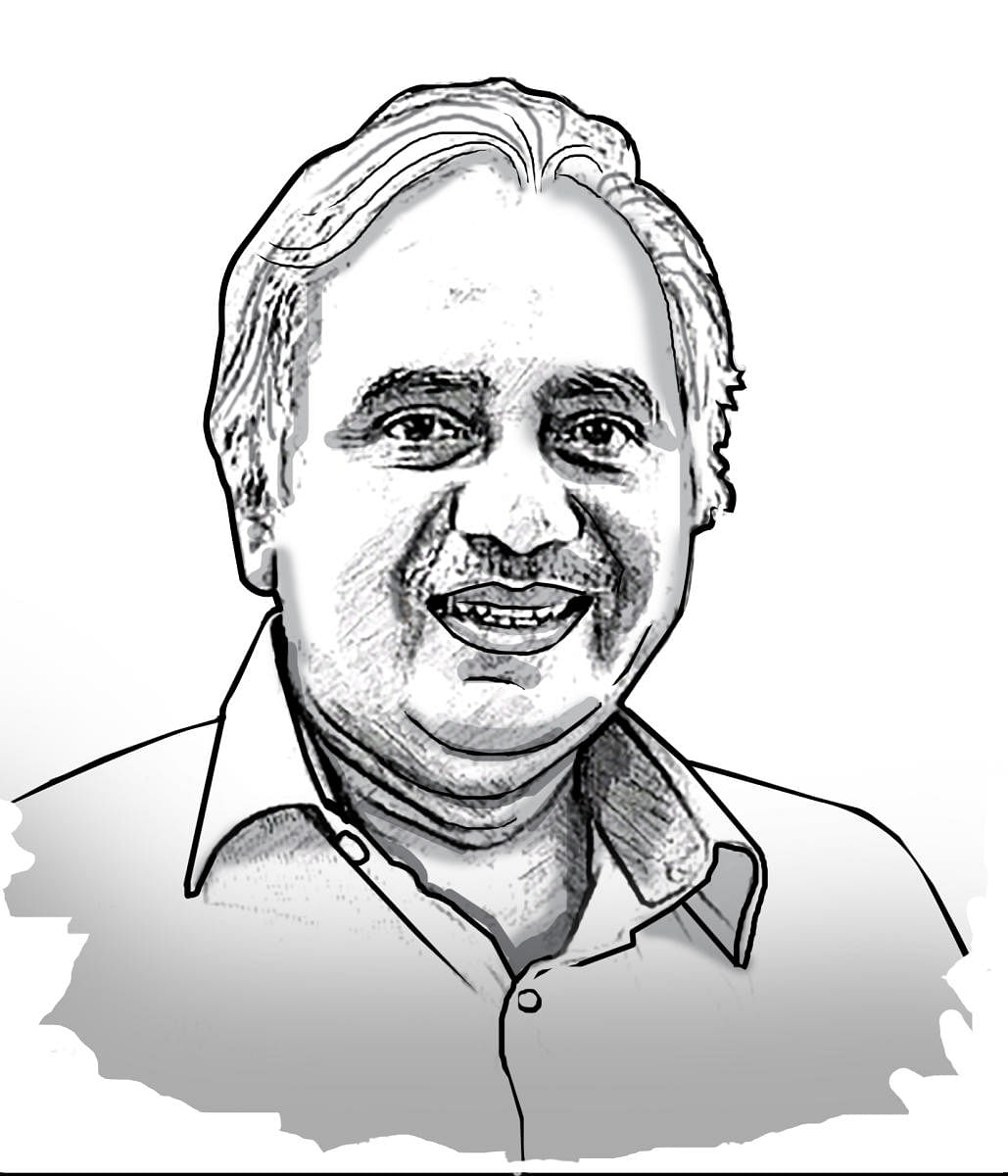 (1).jpg)
Seshadri Chari reads between the lines on big national and international developments from his vantage point in the BJP and the RSS  @seshadrichari
Credit: DH Illustration
The three-phase election to the Assembly of the Union Territory of Jammu & Kashmir (J&K), created in 2019 out of the erstwhile state alongside the abrogation of Article 370, could well put a stamp of popular approval on the abrogation, especially if the BJP manages to emerge as the single-largest party and forms a government. Several ground reports and experiences of stakeholders like local businesses and tourists have suggested that post-Article 370, the situation in J&K has improved substantially, even if it has not returned to the pre-1990 normal. A favourite of tourists and Bollywood until then, J&K saw the rise of terrorism, a pogrom against Hindus that led to the exodus of Kashmiri Pandits from Kashmir starting in 1990.
A decade later, the then Prime Minister Vajpayee provided a healing touch by signalling a resolution of Kashmiri aspirations with his Kashmiriyat-Jhamooriyat-Insaniyat speech. Unfortunately, neither the terrorists, nor their masters in Pakistan, were interested. It was left to the Narendra Modi-led government in 2014 to carry forward the peace message, but with sufficient firepower and pro-active action against terrorism to back it while insulating the local population against separatist elements. A crackdown on terror modules, the dumping of outfits like Hurriyat into the dustbin of history, and hitting out at the root cause of the festering problem -- Article 370 -- changed the ground realities.
In December 2023, the Supreme Court unanimously upheld the revocation of Article 370. In keeping with the promise made by the government in Parliament on August 5, 2019, and the September 30, 2024, deadline set by the Supreme Court, elections have been announced in the Union Territory of J&K.
As of now, the BJP appears to be on a stronger wicket as it has achieved what no previous government could – being able to abrogate Article 370, restore normalcy, and initiate the political process. Many non-NDA parties as well as even prominent Congress leaders like former PM Manmohan Singh and Bhupinder Singh Hooda had supported the abrogation of Article 370, with some of them disagreeing only on what they saw as a hasty and non-consensual way of bringing it about. The Congress’ Chief Whip in the Rajya Sabha, Bhubaneshwar Kalita, even resigned over his party’s stand on the abrogation.
Disregarding the rank and file and senior leaders’ views, the Congress’ ‘high command’ supported the Gupkar Declaration, spearheaded by the Abdullah father-son duo, which vowed to restore the “special status as enshrined in Article 370”, and Congress also became part of the People’s Alliance for Gupkar Declaration (PAGD). During the recent Lok Sabha polls, the PAGD promised restoration of Article 370. But the Congress was ambivalent on it and was thrown out of the alliance. As a result, the BJP won two Lok Sabha seats (Udhampur and Jammu), the Abdullahs’ National Conference (NC) won Srinagar and Anantnag, and an independent candidate won the Baramulla seat.
With Congress and NC teaming up for the Assembly elections, the former should make it clear whether it supports the idea of restoring Article 370 in the Constitution as promised by the NC in its manifesto. Congress knows well that it is constitutionally impossible to bring back Article 370 and that the NC is only grandstanding. The NC has also promised to begin talks with Pakistan (apparently to resolve the ‘Kashmir issue’). That, too, is far out of its remit. Only the Centre can decide on talking to Pakistan. Congress must come clean on these issues. In any case, it neither has its former support base in Jammu region, which has 43 seats after reorganisation of constituencies, nor does it have either the leadership or voter base it used to command in the Valley.
The abrogation of Article 370 kindled a ray of hope among a section of the displaced Kashmiri Hindus of their possible return to their home and hearth and properties – a promise made by the Prime Minister and the BJP. The BJP should work to redeem this promise. It is doubtful if all those displaced would like to return, and even then, live in ghetto-like zones for fear of a repeat of the nineties. The trust and faith quotient have diminished to an abysmally low point.
The Jammu and Kashmir Migrant Immovable Property (Preservation, Protection and Restraint on Distress Sales) Act 1997 aims to protect properties of migrants who had left the state after November 1, 1989, due to “disturbed conditions” remains a non-starter. This Act needs to be amended and implemented.
Nevertheless, the BJP, despite a lack of local leadership and its dependence on outsiders’ help to manage the election can promise the first Hindu Chief Minister of J&K, restore statehood to it, and work for lasting peace. A win for non-BJP parties will be touted as a verdict against the abrogation of Article 370.
